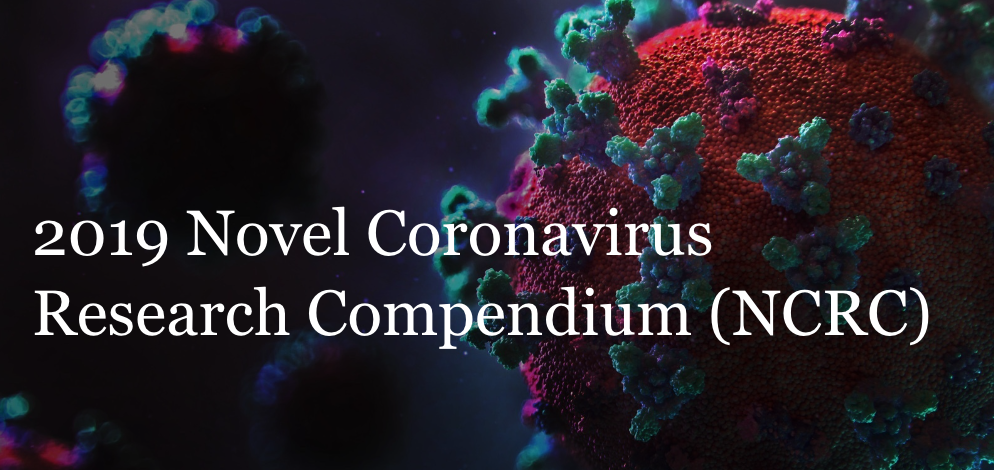No evidence of coronaviruses or other potentially zoonotic viruses in Sunda pangolins ( Manis javanica ) entering the wildlife trade via Malaysia
This article has been Reviewed by the following groups
Discuss this preprint
Start a discussion What are Sciety discussions?Listed in
- Evaluated articles (ScreenIT)
- Evaluated articles (NCRC)
Abstract
The legal and illegal trade in wildlife for food, medicine and other products is a globally significant threat to biodiversity that is also responsible for the emergence of pathogens that threaten human and livestock health and our global economy. Trade in wildlife likely played a role in the origin of COVID-19, and viruses closely related to SARS-CoV-2 have been identified in bats and pangolins, both traded widely. To investigate the possible role of pangolins as a source of potential zoonoses, we collected throat and rectal swabs from 334 Sunda pangolins ( Manis javanica ) confiscated in Peninsular Malaysia and Sabah between August 2009 and March 2019. Total nucleic acid was extracted for viral molecular screening using conventional PCR protocols used to routinely identify known and novel viruses in extensive prior sampling (>50,000 mammals). No sample yielded a positive PCR result for any of the targeted viral families – Coronaviridae, Filoviridae, Flaviviridae, Orthomyxoviridae and Paramyxoviridae. In light of recent reports of coronaviruses including a SARS-CoV-2 related virus in Sunda pangolins in China, the lack of any coronavirus detection in our ‘upstream’ market chain samples suggests that these detections in ‘downstream’ animals more plausibly reflect exposure to infected humans, wildlife or other animals within the wildlife trade network. While confirmatory serologic studies are needed, it is likely that Sunda pangolins are incidental hosts of coronaviruses. Our findings further support the importance of ending the trade in wildlife globally.
Article activity feed
-

SciScore for 10.1101/2020.06.19.158717: (What is this?)
Please note, not all rigor criteria are appropriate for all manuscripts.
Table 1: Rigor
Institutional Review Board Statement IACUC: The sampling protocol was approved by UC DAVIS Institutional Animal Care and Use Committee (protocol number: 16048). Randomization not detected. Blinding not detected. Power Analysis not detected. Sex as a biological variable not detected. Table 2: Resources
No key resources detected.
Results from OddPub: We did not detect open data. We also did not detect open code. Researchers are encouraged to share open data when possible (see Nature blog).
Results from LimitationRecognizer: An explicit section about the limitations of the techniques employed in this study was not found. We encourage authors to address study limitations.Results from TrialIdentifier: No clinical …
SciScore for 10.1101/2020.06.19.158717: (What is this?)
Please note, not all rigor criteria are appropriate for all manuscripts.
Table 1: Rigor
Institutional Review Board Statement IACUC: The sampling protocol was approved by UC DAVIS Institutional Animal Care and Use Committee (protocol number: 16048). Randomization not detected. Blinding not detected. Power Analysis not detected. Sex as a biological variable not detected. Table 2: Resources
No key resources detected.
Results from OddPub: We did not detect open data. We also did not detect open code. Researchers are encouraged to share open data when possible (see Nature blog).
Results from LimitationRecognizer: An explicit section about the limitations of the techniques employed in this study was not found. We encourage authors to address study limitations.Results from TrialIdentifier: No clinical trial numbers were referenced.
Results from Barzooka: We did not find any issues relating to the usage of bar graphs.
Results from JetFighter: We did not find any issues relating to colormaps.
Results from rtransparent:- Thank you for including a conflict of interest statement. Authors are encouraged to include this statement when submitting to a journal.
- No funding statement was detected.
- No protocol registration statement was detected.
-

Our take
In this study, available as a preprint and thus not yet peer reviewed, testing of 334 pangolins entering the wildlife trade in Malaysia showed animals were negative for five viral families, including coronaviruses. These results suggest that coronaviruses are not circulating naturally in pangolins and that exposure to viruses likely occurs “downstream” in the wildlife trade through close contact with humans and other animals.
Study design
ecological
Study population and setting
Throat and rectal swabs were collected from 334 live Sunda pangolins (Manis javanica) confiscated or rescued from the wild in Peninsular Malaysia (n = 286 confiscated, n = 3 wild-rescued) and Sabah state (n = 40 confiscated, n = 5 wild-rescued) between August 2009 and March 2019. Samples were tested by PCR for the …
Our take
In this study, available as a preprint and thus not yet peer reviewed, testing of 334 pangolins entering the wildlife trade in Malaysia showed animals were negative for five viral families, including coronaviruses. These results suggest that coronaviruses are not circulating naturally in pangolins and that exposure to viruses likely occurs “downstream” in the wildlife trade through close contact with humans and other animals.
Study design
ecological
Study population and setting
Throat and rectal swabs were collected from 334 live Sunda pangolins (Manis javanica) confiscated or rescued from the wild in Peninsular Malaysia (n = 286 confiscated, n = 3 wild-rescued) and Sabah state (n = 40 confiscated, n = 5 wild-rescued) between August 2009 and March 2019. Samples were tested by PCR for the presence of genetic material of five viral families (Coronaviridae, Filoviridae, Flaviviridae, Orthomyxoviridae, and Paramyxoviridae).
Summary of main findings
None of the collected swab samples tested positive for genetic material for any of the viral families. Genetic analysis of pangolins suggests that the confiscated pangolins originated from Malaysia, Brunei, or Indonesia.
Study strengths
The study had a moderately large population size collected over ten years, which is substantial given the critically endangered status of Sunda pangolins. Targeting animals entering the “upstream” section of the wildlife trade provides important context for understanding where pangolins are exposed to viruses.
Limitations
The researchers only assessed the presence of viral genetic material via PCR, which would indicate active infection. Additional serological analysis could have provided information on animals’ past exposure to these viruses. Sampling was sporadic across regions and years, so these results cannot confirm the absence of viruses among pangolins.
Value added
These results indicate that pangolins entering the market chain are not carrying viruses, suggesting that exposure of pangolins to viruses (including reports of coronaviruses similar to SARS-CoV-2) may have occurred later in the wildlife trade network from infected humans or other animals within markets or during transportation to their final destination.
-

SciScore for 10.1101/2020.06.19.158717: (What is this?)
Please note, not all rigor criteria are appropriate for all manuscripts.
Table 1: Rigor
Institutional Review Board Statement The sampling protocol was approved by UC DAVIS Institutional Animal Care and Use Committee ( protocol number: 16048) . Randomization not detected. Blinding not detected. Power Analysis not detected. Sex as a biological variable not detected. Table 2: Resources
Software and Algorithms Sentences Resources The contents are the responsibility of the authors and do not necessarily reflect the views of USAID or the United States Government. USAIDsuggested: (USAID, SCR_012846)Results from LimitationRecognizer: An explicit section about the limitations of the techniques employed in this study was not found. …
SciScore for 10.1101/2020.06.19.158717: (What is this?)
Please note, not all rigor criteria are appropriate for all manuscripts.
Table 1: Rigor
Institutional Review Board Statement The sampling protocol was approved by UC DAVIS Institutional Animal Care and Use Committee ( protocol number: 16048) . Randomization not detected. Blinding not detected. Power Analysis not detected. Sex as a biological variable not detected. Table 2: Resources
Software and Algorithms Sentences Resources The contents are the responsibility of the authors and do not necessarily reflect the views of USAID or the United States Government. USAIDsuggested: (USAID, SCR_012846)Results from LimitationRecognizer: An explicit section about the limitations of the techniques employed in this study was not found. We encourage authors to address study limitations.
Results from OddPub: We did not find a statement about open data. We also did not find a statement about open code. Researchers are encouraged to share open data when possible (see Nature blog).
About SciScore
SciScore is an automated tool that is designed to assist expert reviewers by finding and presenting formulaic information scattered throughout a paper in a standard, easy to digest format. SciScore is not a substitute for expert review. SciScore checks for the presence and correctness of RRIDs (research resource identifiers) in the manuscript, and detects sentences that appear to be missing RRIDs. SciScore also checks to make sure that rigor criteria are addressed by authors. It does this by detecting sentences that discuss criteria such as blinding or power analysis. SciScore does not guarantee that the rigor criteria that it detects are appropriate for the particular study. Instead it assists authors, editors, and reviewers by drawing attention to sections of the manuscript that contain or should contain various rigor criteria and key resources. For details on the results shown here, including references cited, please follow this link.
-


